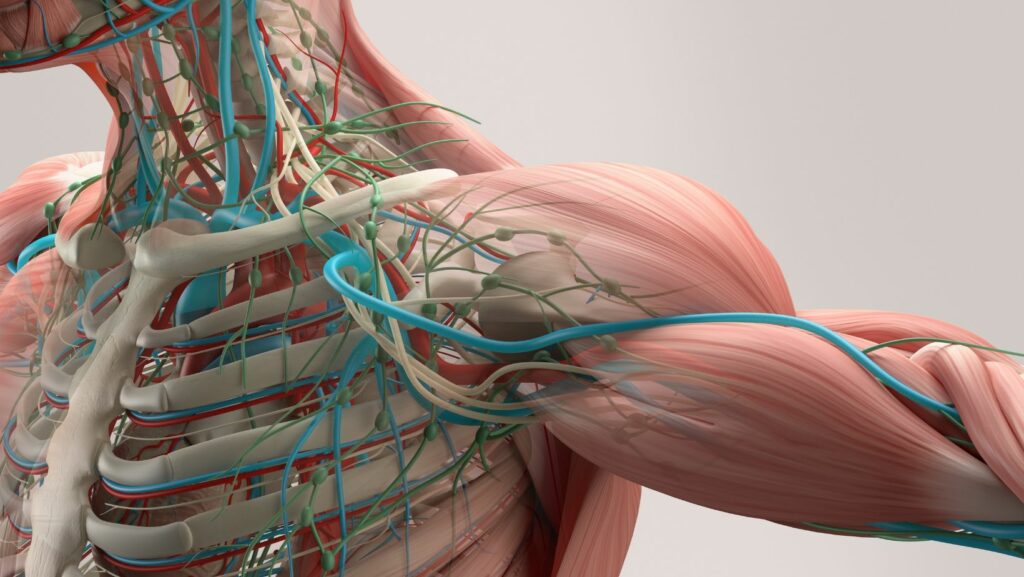In the pursuit of peak physical performance, understanding the role of genetics in muscle strength has become increasingly important.
Whether you’re an athlete or simply focused on improving your core strength, recognizing the interplay between your genes and your fitness routine can be a game-changer.Recent advancements in genetic testing have revolutionized our approach to fitness.
These tests shed light on how specific genetic variants influence muscle strength, injury susceptibility, and exercise performance.
As a result, there’s been a significant increase in genetic testing for muscle training worldwide. This blog will explore how genetic insights can enhance your muscle strength and overall fitness journey.
But first, let’s understand the importance of muscle strength and why you should focus on it anyway.
The Importance of Muscle Strength
Strong muscles are not just for gym enthusiasts and athletes. They’re crucial for overall fitness and wellness. Here’s why muscle strength matters:
- Everyday Activities: Strong muscles make daily tasks like lifting objects, climbing stairs, and carrying groceries easier.
- Physical Performance: Muscle strength is essential for excelling in various physical activities, from aerobics to weightlifting.
- Metabolism: Increased muscle mass boosts your metabolic rate, aiding in weight management.
- Blood Sugar Control: Muscles play a crucial role in regulating blood sugar levels.
- Mobility and Balance: Strong muscles enhance your mobility and improve balance, reducing the risk of falls.
- Bone Health: Resistance training strengthens not just muscles but also bones, reducing the risk of osteoporosis.
- Mental Health: Physical strength often translates to mental resilience and improved mood.
- Healthy Aging: Maintaining muscle strength as you age can significantly improve your quality of life in later years.
The Rise of Genetic Testing in Fitness
Genetic testing has seen a dramatic surge in popularity, especially in developed countries like the United States. According to Halbisen and Lu (2023), as of November 2022, the U.S. had recorded 129,624 genetic tests, including updated versions of existing tests.
Previously, genetic testing was primarily used for diagnosing diseases with a likely genetic component. However, its application has expanded significantly into the fitness realm.

Many genetic testing providers now emphasize the value of understanding your unique genetic makeup for fitness purposes. This knowledge can help you:
- Uncover your inherent strengths and weaknesses
- Optimize your training response
- Improve your body composition
- Enhance your energy levels
- Tailor your nutrition for better performance
How Genetic Insights Improve Muscle Strength
Companies like GENEFIToffer guidance on leveraging your genetic data to create personalized fitness plans. These plans aim to promote muscle growth, enhance performance, and speed up recovery.
Here’s how genetic insights can impact your muscle strength training:
- Optimized Training Schedule: Gain insight into the ideal training frequency and intensity for your body.
- Injury Risk Management: Understand your genetic predisposition to certain injuries and take preventive measures.
- Enhanced Recovery: Discover targeted strategies to speed up your recovery process.
- Personalized Approach: Identify your body’s strengths and weaknesses to focus on areas that need improvement.
- Energy Management: Learn about your natural energy levels and how to optimize them for better performance.
For instance, if you’re focusing on knee-strengthening exercises, genetic insights can guide you toward the most effective workouts for your body type.
The Genetic Factors Influencing Muscle Strength
Have you ever wondered why two people following the same workout routine can experience vastly different results? The answer often lies in their genes.
Several studies have shown that genetic factors play a crucial role in athletic performance and its attributes, such as strength, aerobic capacity, and power.
Key Genes Affecting Muscle Strength
Here are the key genes that impact muscle strength:
- IGF-1 (Insulin-like Growth Factor 1): This gene is vital for muscle growth and repair.
- ACE (Angiotensin-Converting Enzyme): Variants of the ACE gene are linked to power capabilities and endurance.
- MSTN (Myostatin): This gene inhibits muscle growth. Mutations in MSTN can lead to enhanced muscle mass.
- ACTN3 (Alpha-actinin-3): Often called the “speed gene,” ACTN3 is associated with fast-twitch muscle fibers that provide explosive strength and power.
Leveraging Genetic Insights for Muscle Strength
Now that we understand the role of genetics in muscle strength, let’s explore how to use this information effectively.
Customized Training Programs
Your genetic profile can guide you in tailoring your training program. For example:
- If your test reveals a favorable ACE and ACTN3 genotype for strength and power, focus on high-intensity, low-repetition resistance training.
- If your genetic profile indicates a tendency towards endurance, incorporate more cardiovascular workouts to enhance muscle endurance.

- Your test might suggest specific exercises, such as knee strengthening exercises, stability workouts, or flexibility routines.
Nutritional Intervention
Genetics significantly impact your nutritional needs. Understanding your genetic profile can help you:
- Avoid unnecessary supplements and focus on those essential for your health.
- Adjust your macronutrient intake, especially protein, to support muscle growth and repair effectively.
- Identify specific nutrients to prioritize. For instance, if your body is less efficient at absorbing nitrates, you might benefit from beetroot juice supplements.
Recovery Strategies
Recovery is as crucial as training for muscle growth and strength. Genetic insights can help optimize your recovery process by:
- Guiding you on managing oxidative stress.
- Emphasizing the importance of sleep for muscle recovery.
- Suggesting dietary adjustments and supplements to manage inflammation.
Monitoring and Adjusting
Regular monitoring and evaluation of your progress are essential. Use your genetic insights to:
- Track your performance against your genetic potential.
- Adjust your diet and nutritional plan as needed.
- Modify your training intensity and frequency based on your body’s response.
Remember, while genetic predisposition plays a role, factors like consistent training, lifestyle choices, and environmental conditions also contribute significantly to your results.
Key Takeaway
Genetic testing offers valuable insights into optimizing your fitness journey. By understanding your genetic predispositions, you can tailor your nutrition, injury prevention strategies, training intensity, and recovery practices for maximum efficiency.
However, it’s crucial to remember that genetics is just one piece of the puzzle. Your dedication, consistency, and overall lifestyle choices play equally important roles in achieving your fitness goals.
Consider obtaining a genetic test from a reputable provider like GENEFIT to understand your predispositions better. Use this information to develop a customized fitness plan that enhances your efficiency and overall fitness.
Remember, the path to enhanced muscle strength is a personal journey. While genetics provide a roadmap, your commitment and effort will ultimately determine your success.

